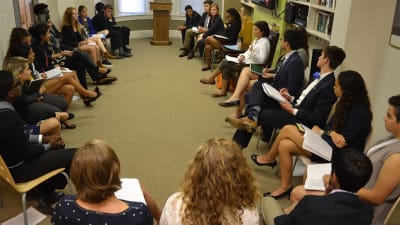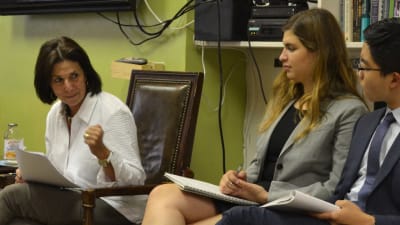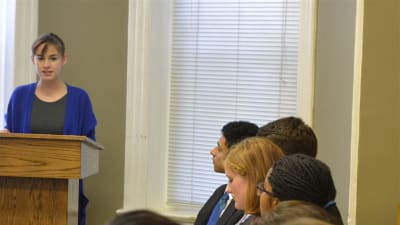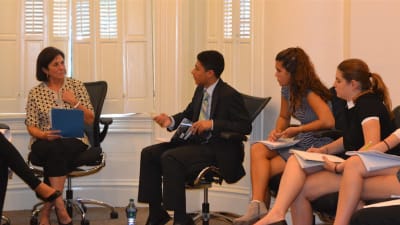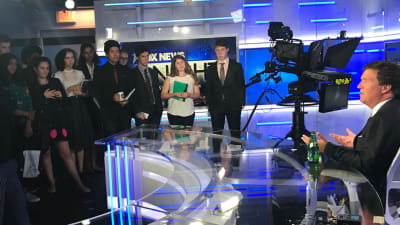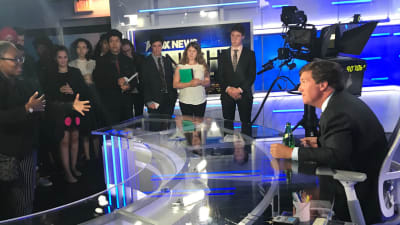Media Ethics, Part II: Abby Phillip and Tucker Carlson
This week we finished our case study on Media Literacy, Bias, and Ethics with a visit from CNN White House Correspondent Abby Phillip and a trip to see a live taping of Tucker Carlson Tonight on Fox News. In the process, our students caught a glimpse of two different approaches to covering today’s news, and generated important questions to consider in the months and years ahead.
Our conversations with these news leaders came a few weeks after the beginning of our Media case study, and built on our earlier work.
Phillip visited us for lunch at our Dupont Circle Academic building. She took questions for over an hour, on a variety of topics: reporter safety in the Trump era, whether all journalists are biased in some way, how being an African American woman has influenced her career, and much more. Phillip’s responses were measured, collegial, and peppered with return questions for our students.
After a tour of Fox News’s DC headquarters, we settled in for a memorable taping of Carlson’s show. The “A Block” started with a Brett Kavanaugh bang (watch the clip here), and the confrontation with his in-studio guest immediately engaged the students. As small group after small group entered the studio segment by segment, the students reflected on Carlson’s on-air and off-air personalities, the strength of his arguments, and much more. At the end of the show, he welcomed us into the studio again for a short give-and-take (“What is it like to know that the President watches your show every night?”) and a few photos. In contrast to Phillip, Carlson’s approach was larger-than-life, fast-moving, and peppered with humorous asides.
In reflections afterward, the students were pensive and impressive. Carlson was welcoming and rhetorically powerful, they said, but many observers call him intolerant and harmful: how can one reconcile these differing sentiments? Phillip suggested that her background informs her coverage, but does not bias it: how should journalists walk this line? What other journalists might help students understand the current state of the media? These questions, and others, will echo throughout our semester–and raise our students’ critical thinking skills.


